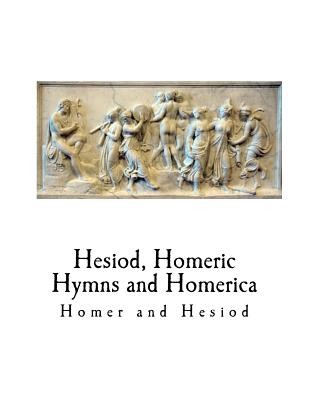
- We will send in 10–14 business days.
- Author: Hesiod
- Publisher: CreateSpace Independent Publishing Platform
- Year: 2018
- Pages: 170
- ISBN-10: 1718700199
- ISBN-13: 9781718700192
- Format: 21.6 x 27.9 x 0.9 cm, minkšti viršeliai
- Language: English
- SAVE -10% with code: EXTRA
Reviews
Description
Hesiod, Homeric Hymns and Homerica by Homer and Hesiod. The early Greek epic - that is, poetry as a natural and popular, and not (as it became later) an artificial and academic literary form - passed through the usual three phases, of development, of maturity, and of decline. No fragments which can be identified as belonging to the first period survive to give us even a general idea of the history of the earliest epic, and we are therefore thrown back upon the evidence of analogy from other forms of literature and of inference from the two great epics which have come down to us. So reconstructed, the earliest period appears to us as a time of slow development in which the characteristic epic metre, diction, and structure grew up slowly from crude elements and were improved until the verge of maturity was reached. The second period, which produced the "Iliad" and the "Odyssey", needs no description here: but it is very important to observe the effect of these poems on the course of post-Homeric epic. As the supreme perfection and universality of the "Iliad" and the "Odyssey" cast into oblivion whatever pre-Homeric poets had essayed, so these same qualities exercised a paralysing influence over the successors of Homer. If they continued to sing like their great predecessor of romantic themes, they were drawn as by a kind of magnetic attraction into the Homeric style and manner of treatment, and became mere echoes of the Homeric voice: in a word, Homer had so completely exhausted the epic genre, that after him further efforts were doomed to be merely conventional.
- Author: Hesiod
- Publisher: CreateSpace Independent Publishing Platform
- Year: 2018
- Pages: 170
- ISBN-10: 1718700199
- ISBN-13: 9781718700192
- Format: 21.6 x 27.9 x 0.9 cm, minkšti viršeliai
- Language: English English
Hesiod, Homeric Hymns and Homerica by Homer and Hesiod. The early Greek epic - that is, poetry as a natural and popular, and not (as it became later) an artificial and academic literary form - passed through the usual three phases, of development, of maturity, and of decline. No fragments which can be identified as belonging to the first period survive to give us even a general idea of the history of the earliest epic, and we are therefore thrown back upon the evidence of analogy from other forms of literature and of inference from the two great epics which have come down to us. So reconstructed, the earliest period appears to us as a time of slow development in which the characteristic epic metre, diction, and structure grew up slowly from crude elements and were improved until the verge of maturity was reached. The second period, which produced the "Iliad" and the "Odyssey", needs no description here: but it is very important to observe the effect of these poems on the course of post-Homeric epic. As the supreme perfection and universality of the "Iliad" and the "Odyssey" cast into oblivion whatever pre-Homeric poets had essayed, so these same qualities exercised a paralysing influence over the successors of Homer. If they continued to sing like their great predecessor of romantic themes, they were drawn as by a kind of magnetic attraction into the Homeric style and manner of treatment, and became mere echoes of the Homeric voice: in a word, Homer had so completely exhausted the epic genre, that after him further efforts were doomed to be merely conventional.


Reviews